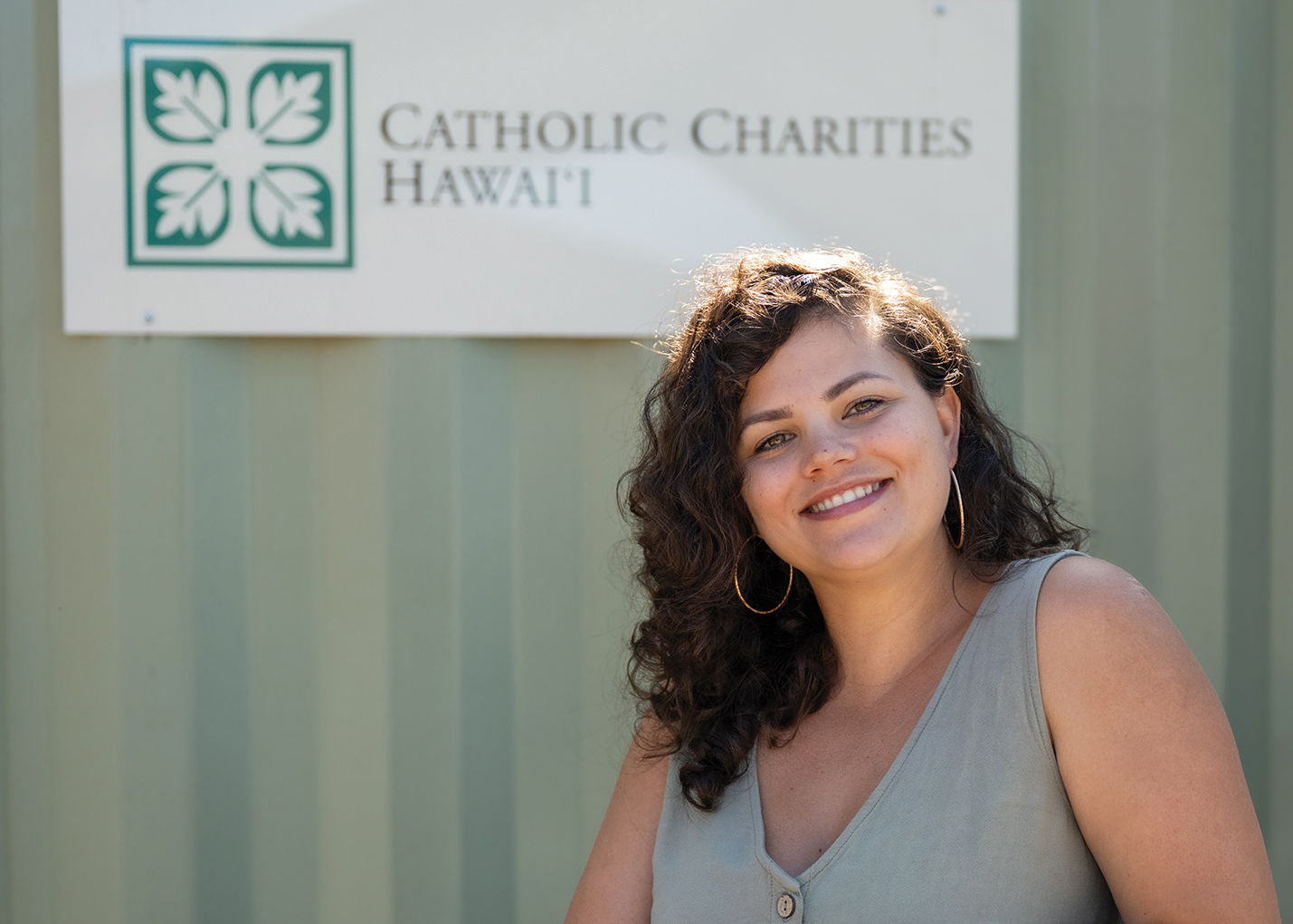Growing the mental health care workforce
Kaiser Permanente is investing in mental health's future workforce through a postgraduate program.

More than 50 million Americans are living with mental illness, yet there is only one mental health provider available for every 350 people. That means that nearly 55% of adults with mental health conditions can’t get the treatment they need, according to the National Council for Mental Wellbeing.
“Most therapists are maxed out. They have waiting lists for individual type therapy and clinical services. Job postings often go unfilled because there’s much greater need than there are people to fill those positions,” says Aimee Chung, field education coordinator at the University of Hawai‘i Thompson School of Social Work & Public Health. “Although we put out a lot of graduates every year, it’s still challenging to meet the need in the community.”
Last year, the Thompson School of Social Work & Public Health launched the Hawai‘i Mental Health Workforce Accelerator Program through a partnership with Kaiser Permanente. The program aims to increase the number of qualified licensed mental health and substance use treatment clinicians by reducing the barriers to licensure. Right now, obtaining a license is expensive and must be pursued after graduation.
“Kaiser Permanente wanted to look for ways to give back to the community and expand the clinical workforce, and therefore, expand the number of community members able to receive mental health services,” says Chung. “And it’s not just about expanding, it’s about diversifying. We want a workforce, a clinical workforce, that looks like the community.”
Overcoming barriers
Health centers, nonprofit providers, and medical institutions can apply to participate in the Workforce Accelerator program, and if chosen, they can hire full-time employees through the initiative. Chung says that 22 sites have applied and over 100 potential job candidates have expressed interest. Candidates must already have their master’s degrees and the desire to achieve licensure in two years. The program’s goal is to get 20 people licensed over the course of the two-year grant.
The benefits are significant for candidates, who in some cases would have to pay for the required 3,000 hours of supervised clinical social work experience on their own. In the program, Kaiser Permanente covers the costs and the employee is paid a stipend.
A recent graduate and Maui resident, Kristina Silva-Pedrero wasn’t sure that she had the capacity to pursue her clinical social worker license after the Lahaina wildfires. “We lost our house and my son was 5 days old. All these things happened, so I was going to put that off until we could rebuild our ancestral home, or until we found stability again and a sense of normalcy,” Silva-Pedrero says. “But because of this program, I was able to find employment.”

Silva-Pedrero was in the Accelerator's first cohort and works at one of the approved program sites, Catholic Charities Hawai‘i. She says she is over halfway to completion and the program has saved her a lot of money. “It costs like, oh gosh, anywhere from $1,000 to $3,000 for just licensure. It’s a lot and that’s not including what people pay for supervision hours,” says Silva-Pedrero. She approximates the cost she would have had to pay to find a supervisor on her own as anywhere between $85 to $150 an hour.
In the program, Kaiser Permanente covers the costs of clinical supervision and supplements candidates’ salaries. Candidates also receive support for study materials and fees associated with testing. “Normally, you’d have to pay for that, and that’s a lot of money,” says Silva-Pedrero.
Rural Impact

On Hawai‘i Island, the Hawaii Island Community Health Center is another Accelerator site. The shortage of on-island therapists has led some centers to recruit outside of Hawai‘i, but folks at the Hawaii Island health center hope that programs like the Accelerator will assist in developing a bigger local workforce.
“We’ve had this goal of really growing our own therapists, not only in the state, but within our county,” says Katherine May, behavioral health director at the Hawai‘i Island Community Health Center, which reaches underserved and at-risk populations and provides care across the island. “We’re rural health on Hawai‘i Island, and so if we can grow our own, it allows us to have providers who are from the communities that they’re serving, that have knowledge of the cultures and the communities that they’re working within, and that really helps us build practitioners.”
Experience has shown that talent from outside of Hawaii is easy to find and hard to retain. “There’s a huge need for culturally aware therapists from Hawaii. It’s a very unique place culturally, with the diversity, in conjunction with just apparent lack of resources out here, so it’s a unique place to practice,” says Brandon Kang, clinician supervisor for the Hawai‘i Island Community Health Center.
“I think being able to see the community need and then create and grow therapists from our community has really been a big need, and I hope it continues,” Kang says.